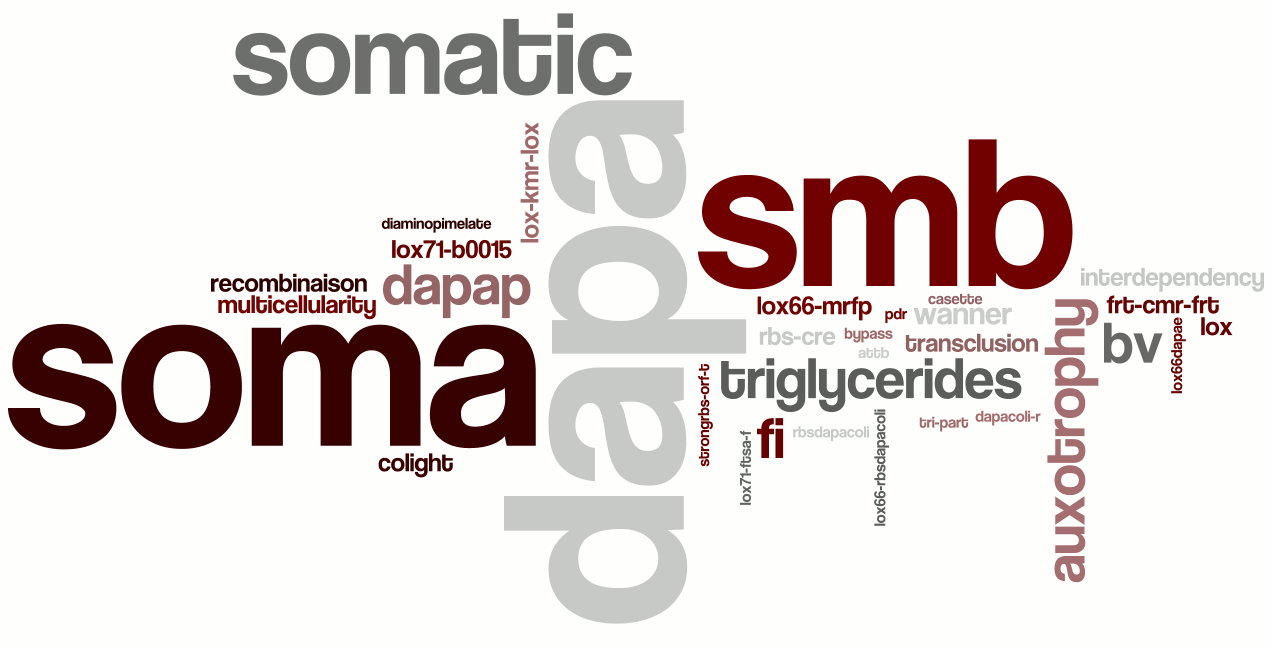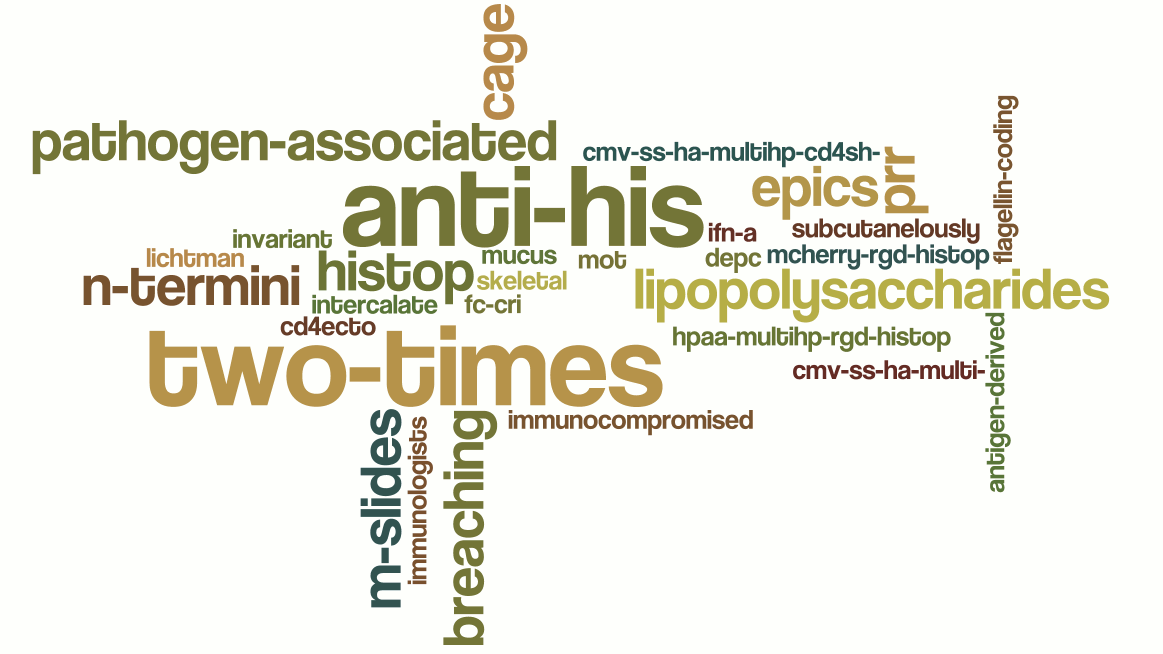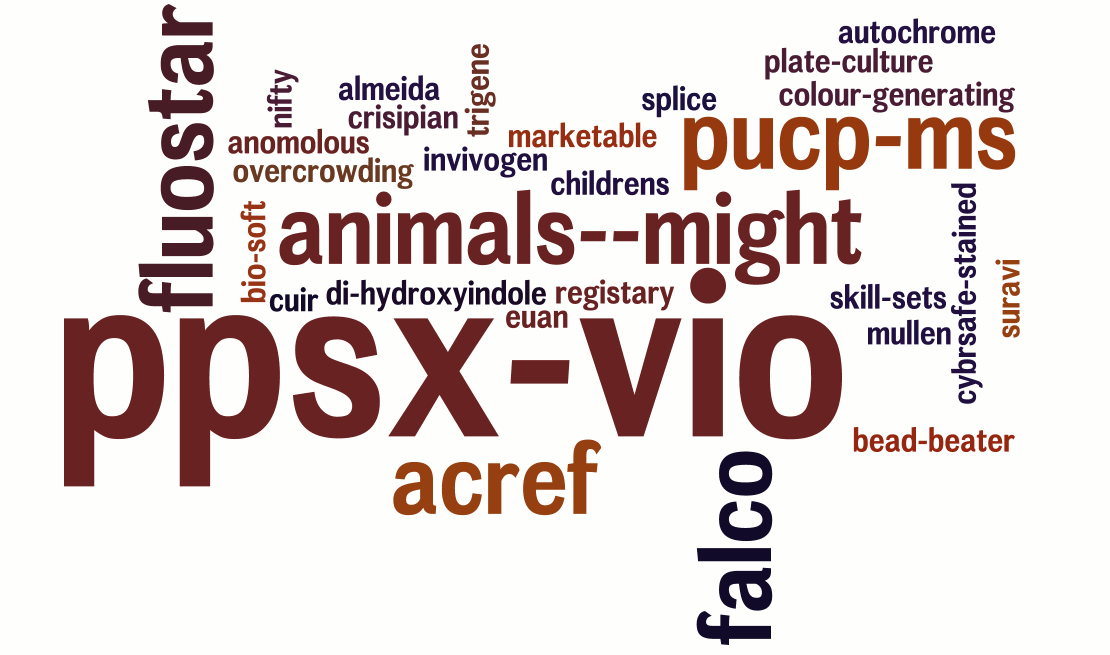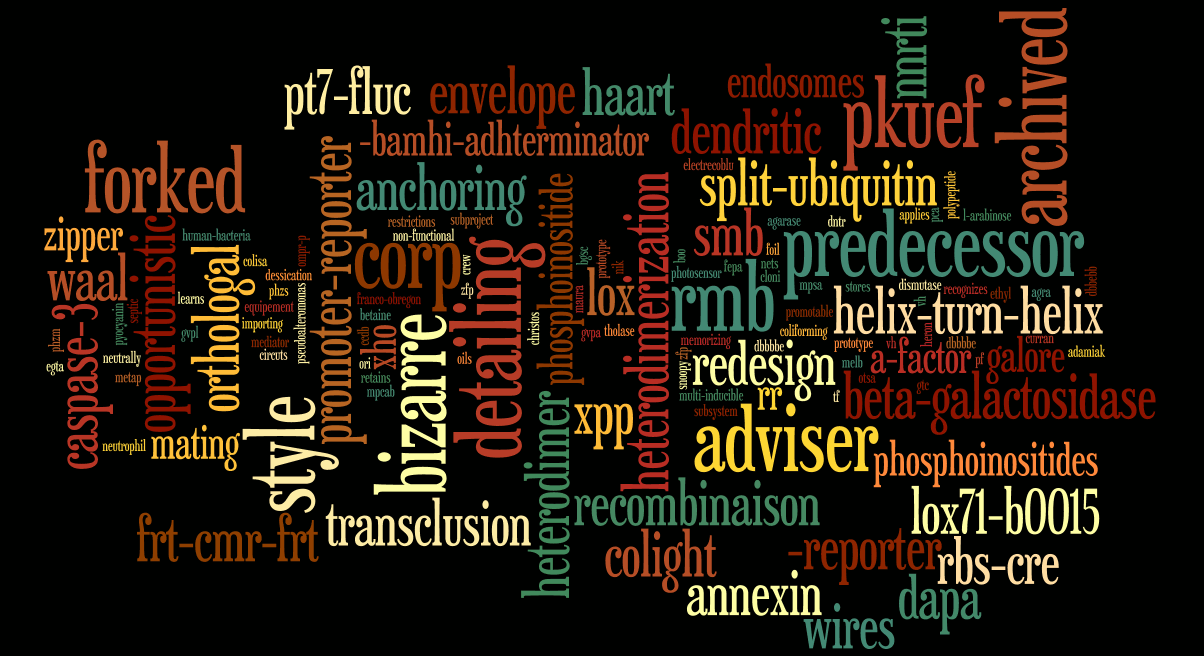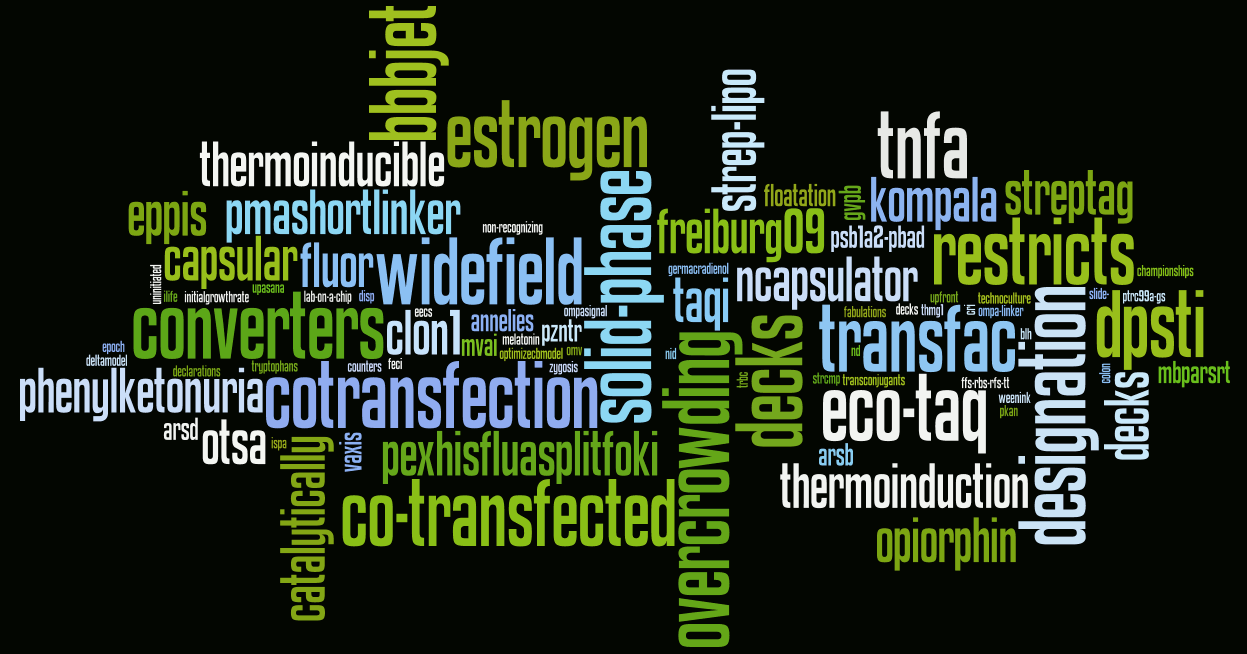Team:Paris Liliane Bettencourt/Project/SIP/Results
From 2010.igem.org
We have calculated SIP words for each team and each year since 2007 using SIP.C (see the code menu for more information), for each them we have take the 25 top sip valued words. We use TOP_SIP.C to make that, this software see what is the hight SIP value and then take N words with this hight SIP.
When we got our words, we put in a [http://www.wordle.net/ software], to display them with graphical effect : words with hight frequencies has a big font, and words with low frequencies has a small font.
Just to give you a glimpse of what our software can do and how it can characterise a project, here is some examples we made on last years' winners and on the Paris 2007 team. The aim of all this is to try to extract the main ideas or key terms of a given wiki.
Paris Team
This is the analysis for [http://parts.mit.edu/igem07/index.php/Paris team Paris 2007].We have selected 60 words and filtered out all words like "p1", "f23".
Just to let judge by yourself, here is the abstract of the 2007 Paris team :
"The aim of our project is to engineer the first synthetic multicellular bacterium, the SMB. This new organism is a novel tool for the engineering of complex biological systems. It consists in two interdependent cell lines. The first, dedicated to reproduction is the germ line (red cells in the simulation below). It is able to differentiate into the second line: the soma (green cells), which is sterile and dedicated to support the germ line. The germ line is auxotroph for DAP (diaminopimelate) which is provided by the soma. There is thus an interdependency relationship. The soma, being sterile, requires the germ line for its generation, while the germ line needs the soma to complement its auxotrophy. We provide here both experimental and computational evidences that this system can work, as well as the almost complete construction of the SMB."
Last iGEM Winner
Here are the images for the three last iGEM winner with their related abstract :
Peking 2007
"Our projects concern with the ability for bacterial cells to differentiate out of homogeneous conditions into populations with the division of labor. We aim at devices conferring host cells with the ability to form cooperating groups spontaneously and to take consecutive steps sequentially even when the genetic background and environmental inputs are identical. To break the mirror in such homogeneous condition, we need two devices respectively responsible for temporal and spatial differentiation. The implementation and application of such devices will lead to bioengineering where complex programs consisted of sequential steps (structure oriented programs) and cooperating agencies (forked instances of a single class, object and event oriented) can be embedded in a single genome. Although this "differentiation" process resemble the development of multicellular organism, we tend to use a more bioengineering style analogy: assembly line. Or maybe after some years from now, this will not be just an analogy."
Slovenia 2008
Cambridge 2009
iGEM Ranking
We try to aproach our first goal with determining the high words used by the last iGEM winner. So we generate for 2007 and 2009 year. We attribute points to winner using the next rules. We keep 15 words by team. Notice, people name and miss spelling words are remove to have a better display.
- Grand prize : 5 pts.
- Finalist : 3pts.
- Other prize : 1pt.
- Winner : 5pts.
- 1st Runner up : 4pts.
- 2nd runner up: 3pts.
- Runner up : 2pts.
2007 year :
- Peking: 6 pts.
- Ljubljana: 4 pts.
- Paris: 4 pts.
- UCSF: 3 pts.
- USTC: 4 pts.
- Glasgow: 1 pt.
- Alberta: 1 pt.
- Cambridge: 1 pt.
- Melbourne: 1 pt.
- UC Berkeley: 1 pt.
- Calgary: 1 pt.
- ETHZ: 1 pt.
2009 year
- Alberta: 1 pt.
- ArtScienceBangalore: 1 pt.
- BCCS-Bristol: 1 pt.
- Berkeley Software: 1 pt.
- Cambridge: 6 pts.
- EPF-Lausanne: 1 pt.
- Freiburg bioware: 4 pts.
- Groningen: 2 pts.
- Heidelberg: 6 pts
- Illinois-Tools: 1 pt.
- Imperial College London: 4 pts.
- Paris: 1 pt.
- Stanford: 1 pt.
- TUDelft: 1 pt.
- ULB-Brussels: 1 pt.
- UNIPV-Pavia: 1 pt.
- Valencia: 5 pts.
 "
"




